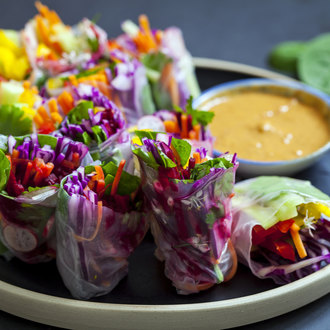Stress-Fighting Tips
Feeling wiped out after the holidays? You’re not alone. Multiple social occasions, visits from family, extra financial burdens and constant rushing can leave you feeling depleted and stressed. Stress is a feeling we all experience when we are challenged or overwhelmed, but more than just an emotion, stress is a hardwired physical response that travels throughout your entire body. In the short term, stress can be advantageous and we can use it to get stuff done. However, when activated too often or for too long, your primitive fight or flight response not only changes your brain but also damages many other organs and cells throughout your body. Prolonged stress accelerates your body’s use of carbohydrates, protein and fat and many vitamins and minerals. The better nourished you are the better you are at coping with stress.
Strategies to help your body manage the effects of chronic stress:
- Don’t skip breakfast – Fueling your body after an overnight fast provides carbohydrates to your brain. Be sure to include protein as an anchor for energy.
- Eat 5 times each day. Aim for breakfast, snack, lunch, snack, dinner. This will provide steady fuel to the brain and prevent any major dips in energy.
- Eat plenty of fruits and vegetables- antioxidants found in fruits and vegetables have been associated with cognitive function and help improve immune function. Try to have a fruit or vegetable every time you eat.
- Eat Complex carbohydrates- whole grains, fruits, vegetables and dairy provide a source of slow releasing energy that helps release serotonin
- Include lean meats, fish, poultry, legumes and yogurt for protein and zinc, both essential nutrients to immune function.
- A deficiency in Magnesium can trigger migraine headaches. Choose whole grains, grapefruits, figs, seeds, raisins and tomatoes for magnesium. Add raisins to your oatmeal and make a salad with grapefruit sections.
- B Vitamins are used in mobilizing energy stores and neurotransmitter production. A lack of B vitamins can result in fatigue, irritability and anxiety. Good sources include enriched cereals, legumes, nuts and seeds, greens, meat, poultry and yogurt.
- Get more tryptophan from foods such as fish, turkey and beans as tryptophan produces serotonin. Pull out those frozen turkey leftovers!
- Increase omega-3 fats- Fish oils, flaxseed and walnuts are sources of omega 3 fats, the primary structural fatty acid in the gray matter of the brain. EPA influences receptor activity, making it easier for serotonin to pass through the cell.
- Get enough vitamin D. The Mood vitamin. 600-2000IU/day
- Vitamin C helps blunt the rise in cortisol during stress and can mitigate some of its’ harmful effects. Vitamin C is involved in the synthesis of neurotransmitters such as serotonin, dopamine and norepinephrine. People with high blood levels of vitamin C have been shown to fare better mentally and physically in stressful situations. Eat kiwi, oranges, strawberries, broccoli, peppers, tomatoes. Consider taking 500mg vitamin C 1-2x per day. Vitamin C is water soluble so must be consumed daily.
- Drink plenty of water. Dehydration not only affect energy but also mood. Keep your water bottle with you all day.
- Reduce Sugar/sweets- sugar consumption can lead to blood sugar fluctuations and result in changes in mood, headaches and fatigue. Sugar activates the sweet taste receptors which sends messages to the brain releasing dopamine activating the reward system. Constant sugar consumption leads to constant reward, having an addictive effect.
- Limit Caffeine- too much caffeine can give you the jitters, make you nervous and affects your sleep. Try having decaf or tea. Tea contains less caffeine 20-60mg/cup vs 90-200mg in coffee.
- Limit or avoid Alcohol– limit alcohol to 1 drink or les per day. Alcohol makes you edgy, depressed and can interfere in sleep.
In addition to these nutrition tips, regular activity and a good night’s sleep can make a world of difference.















